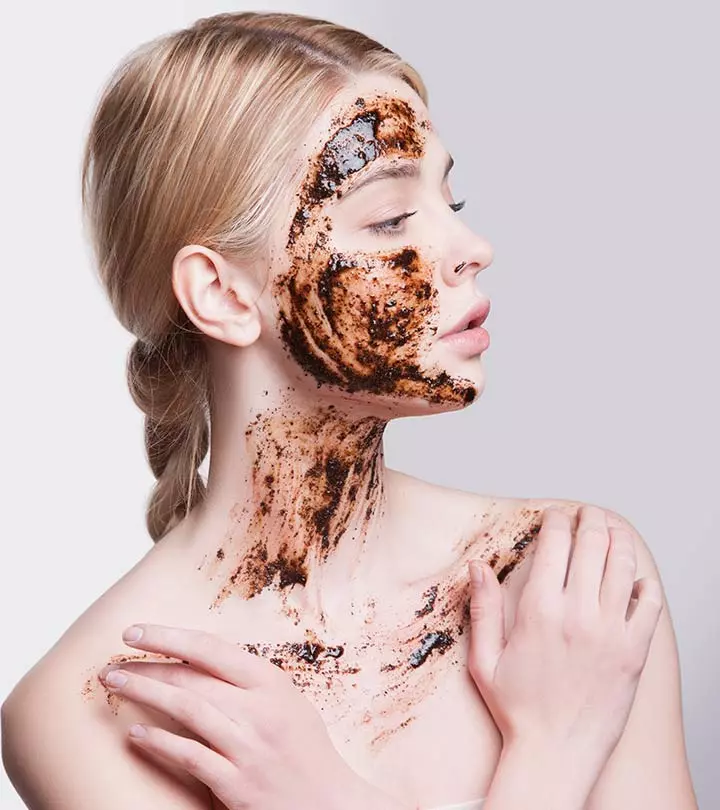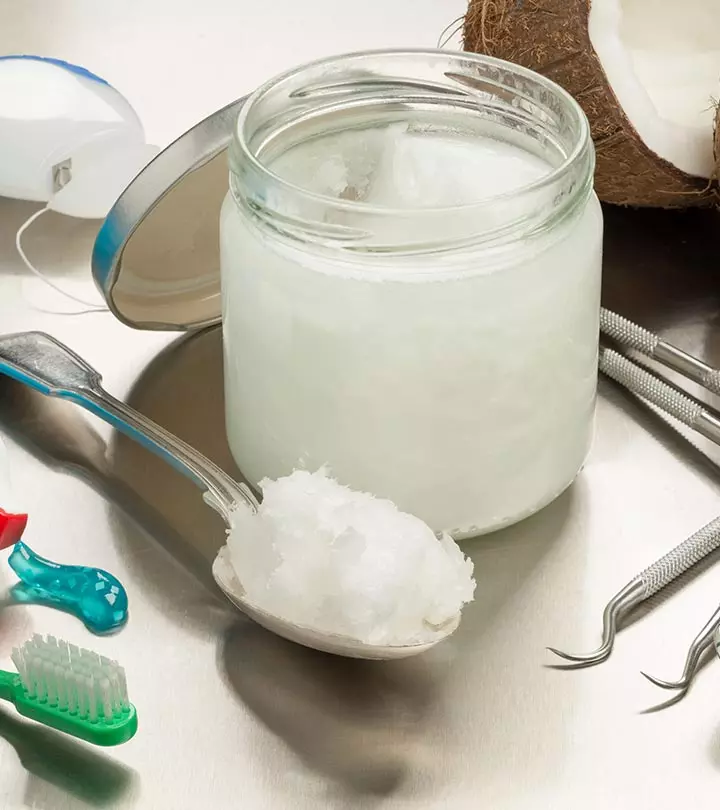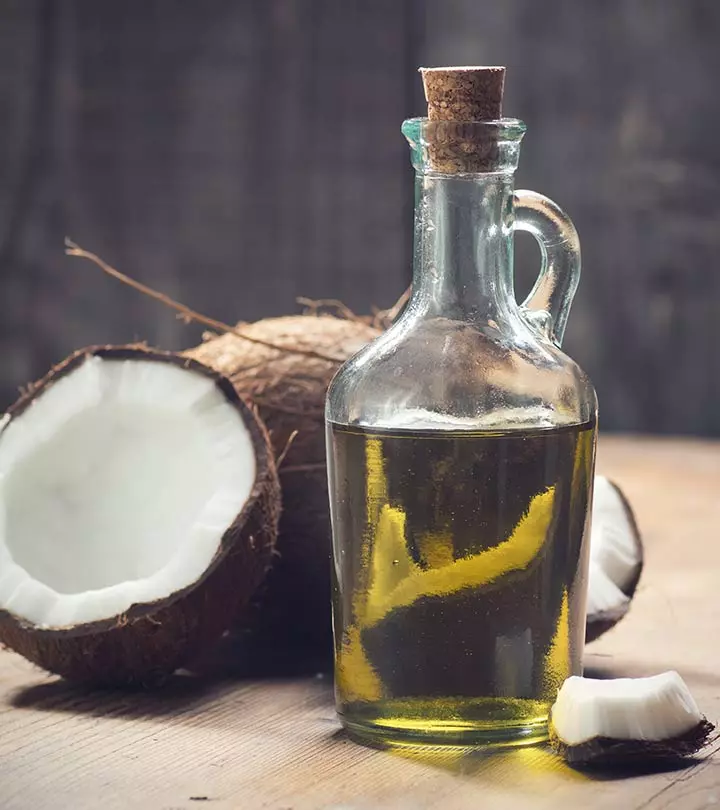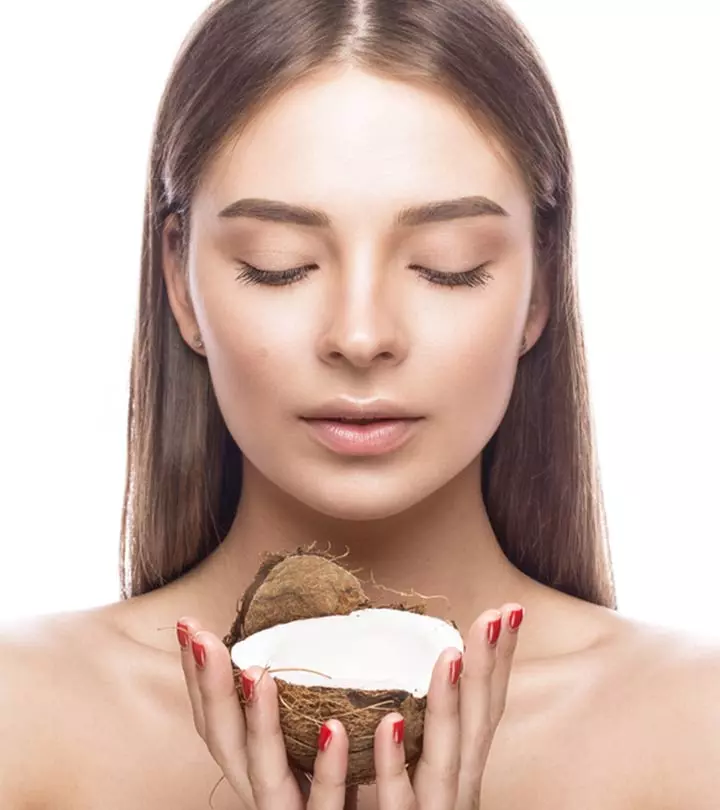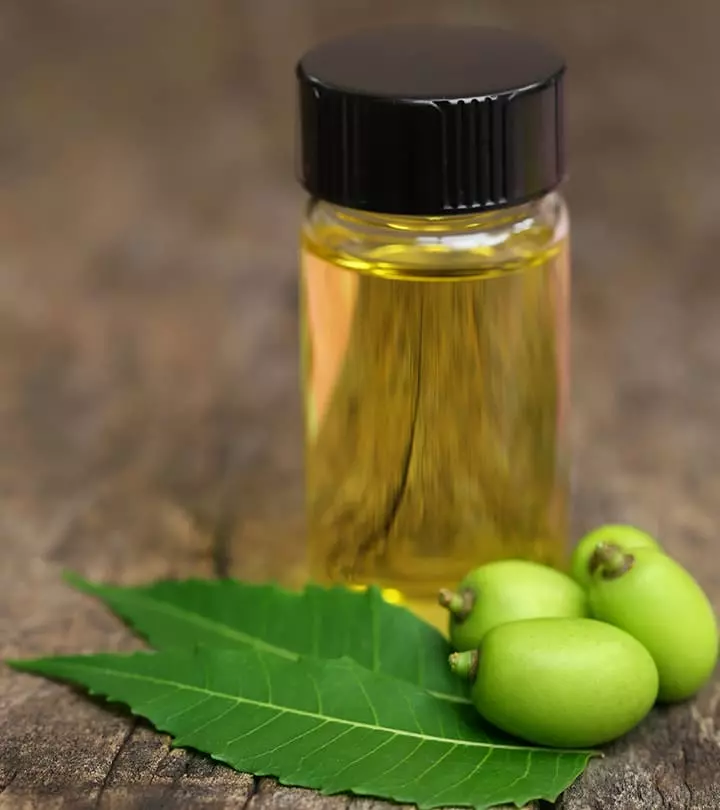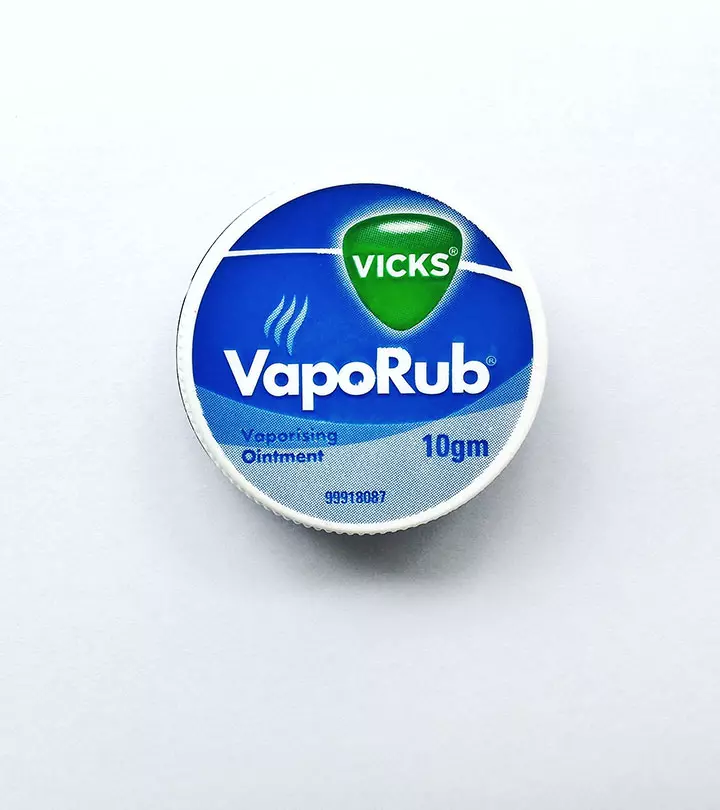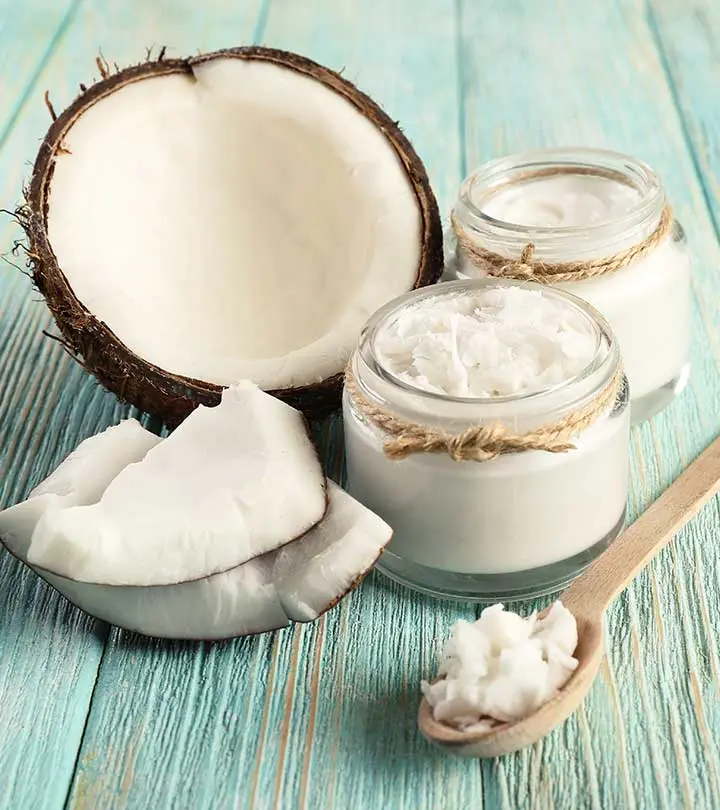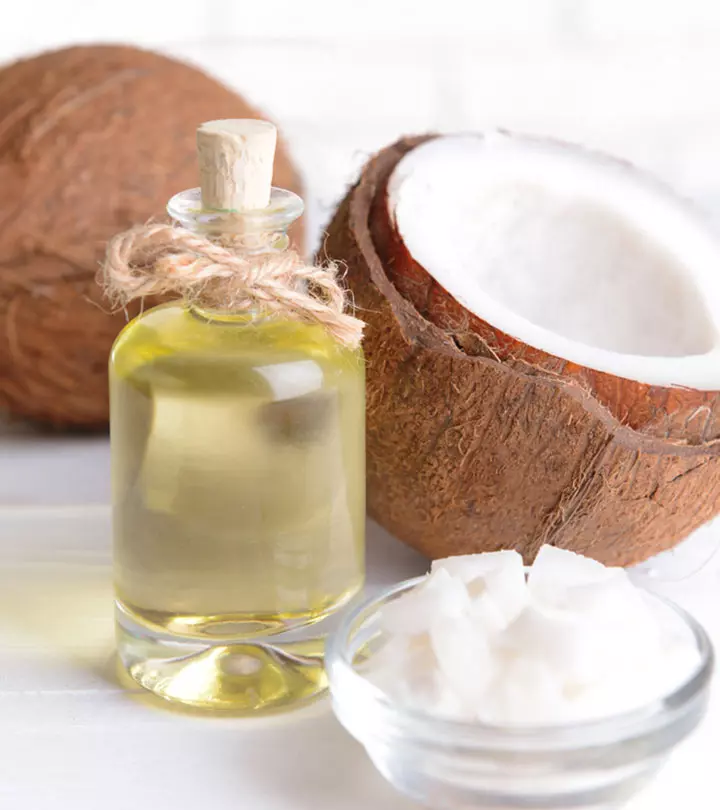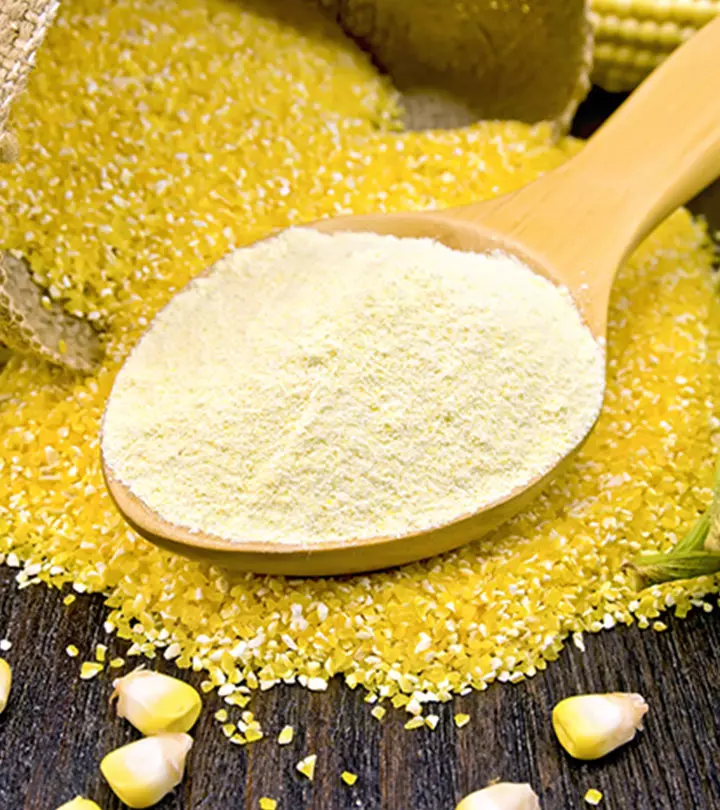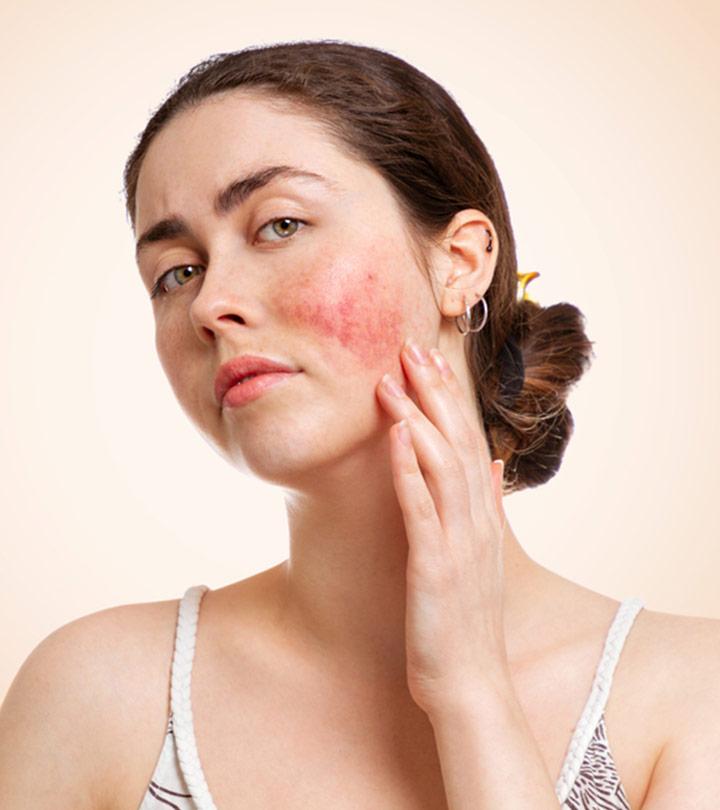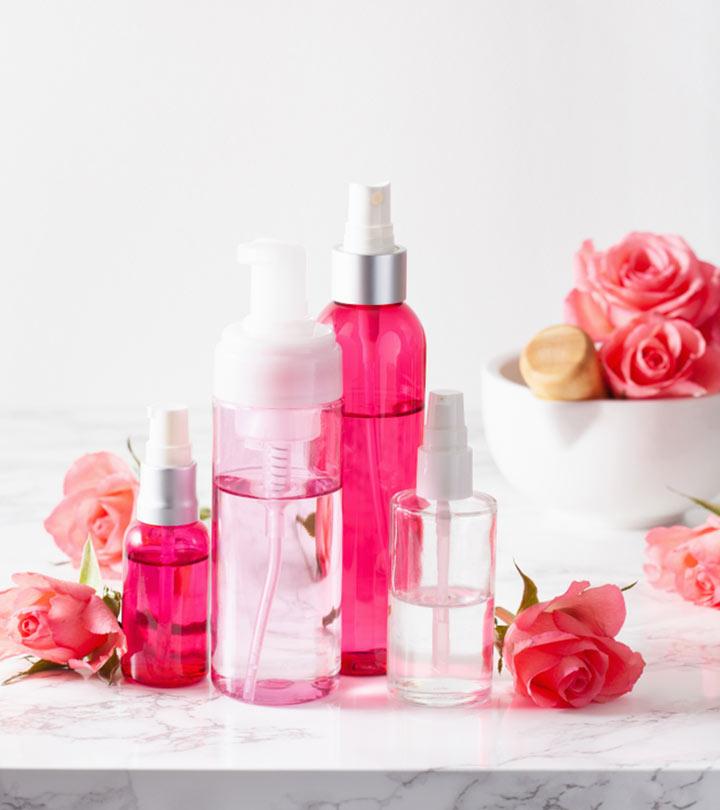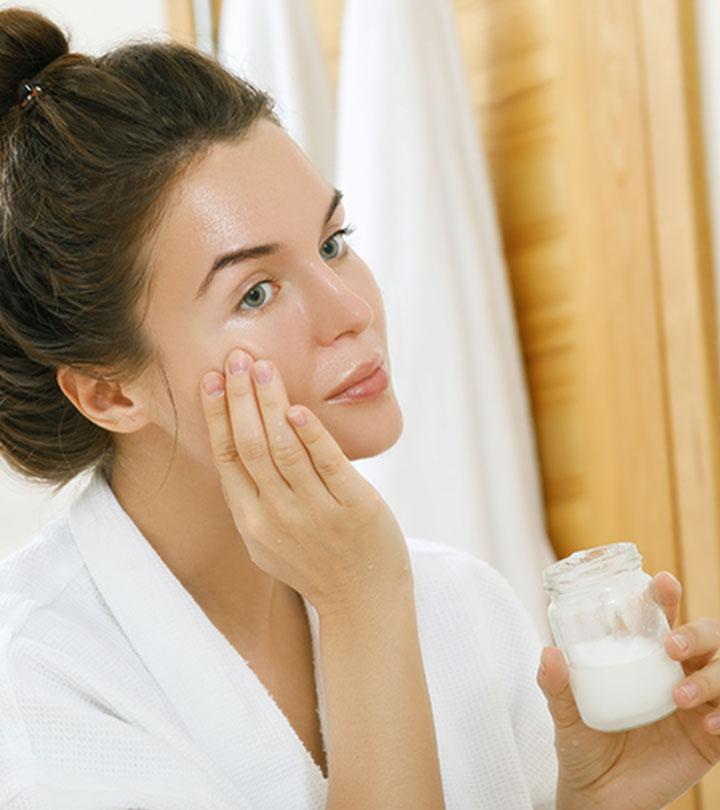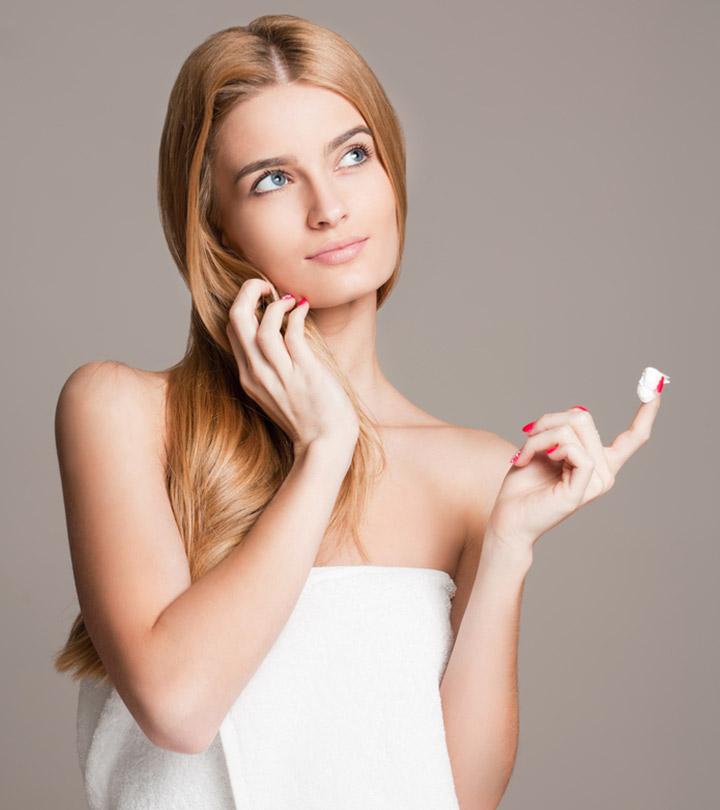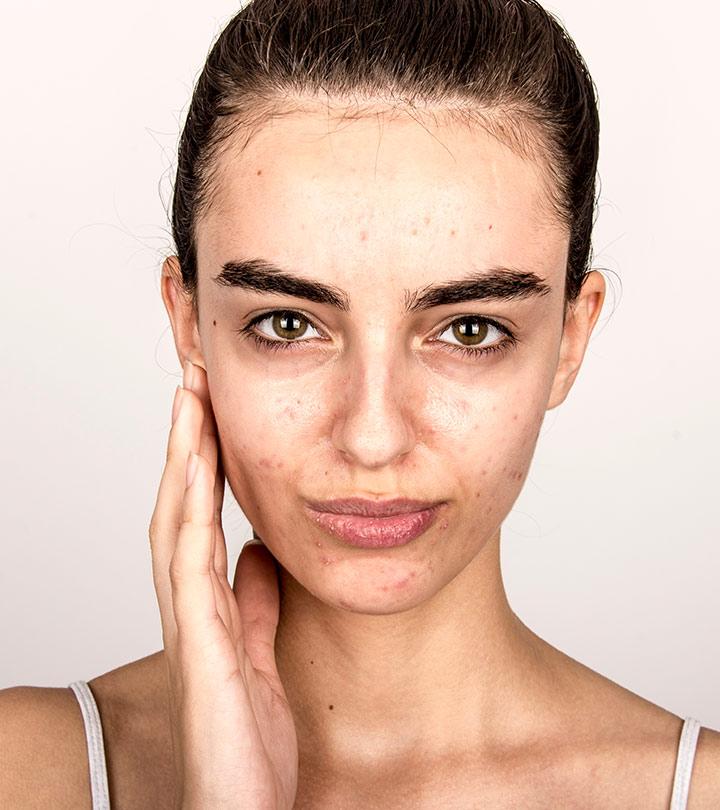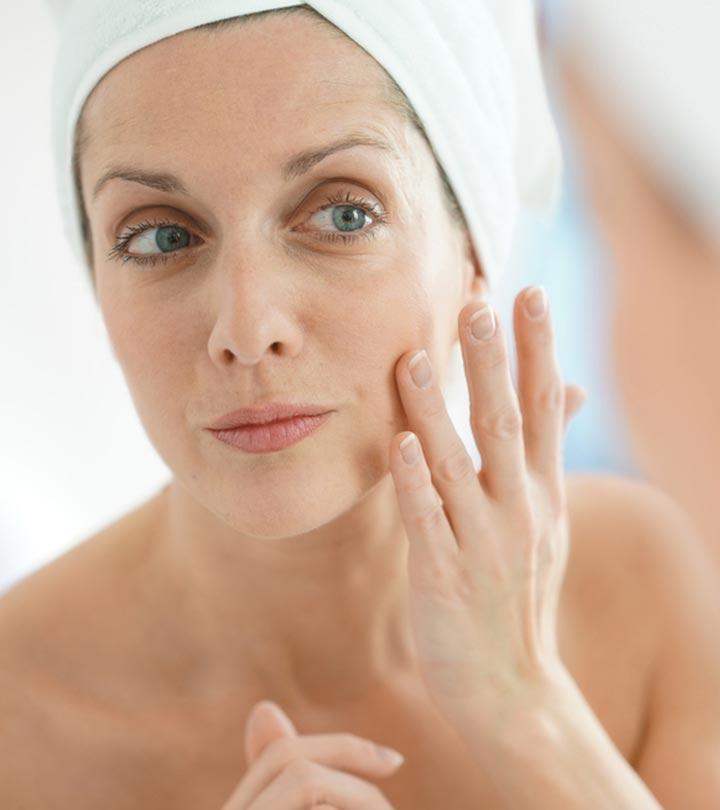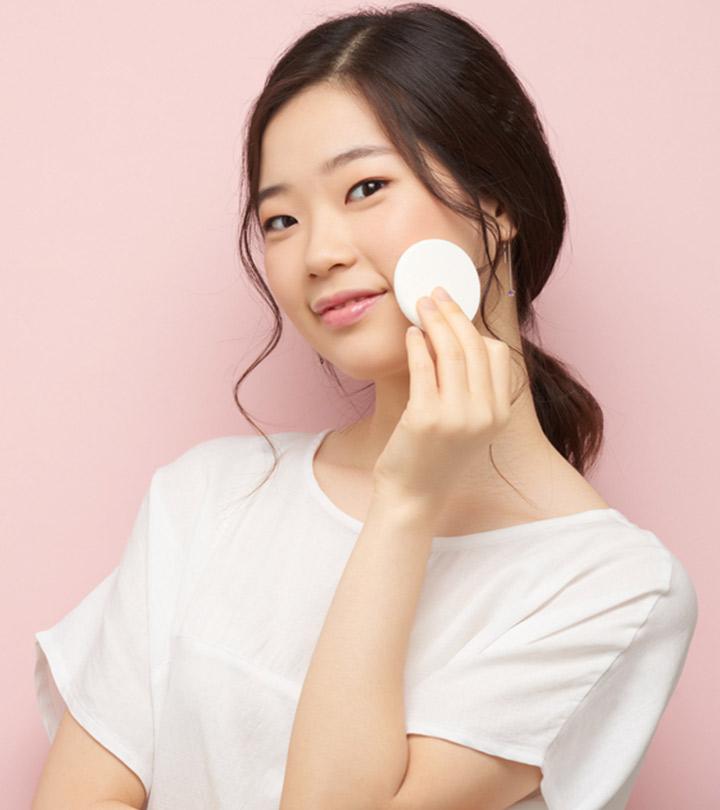Coconut Oil For Acne: Does It Work? Are There Any Risks?
Explore the facts about coconut oil right to find your clear skin solution.
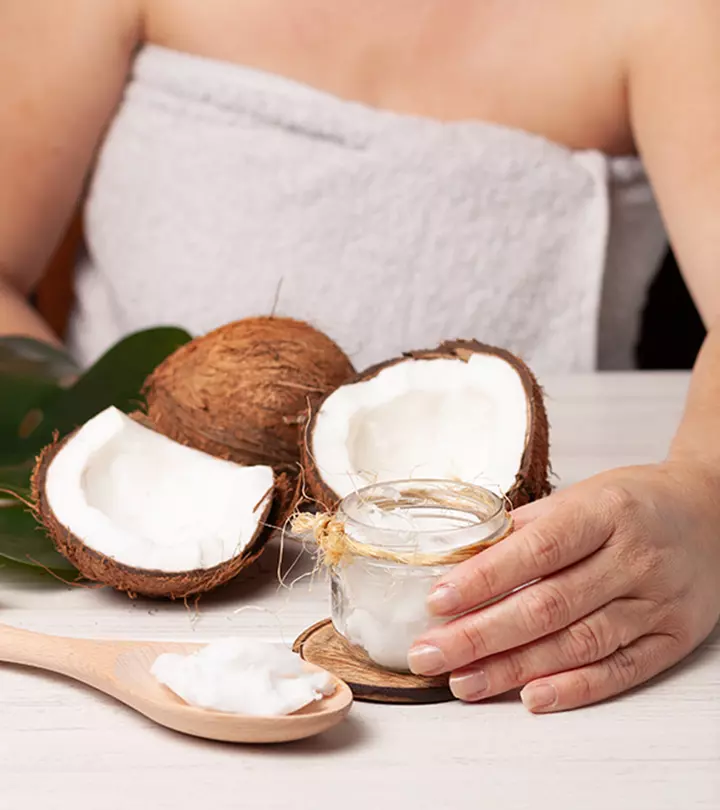
Coconut oil is excellent for moisturizing the skin and hair care. However, can you use coconut oil for acne? While coconut oil can calm skin irritation and prevent inflammation, many believe it may soothe acne. Even though you will find it in many skin care products and traditional face masks, is it safe to use coconut oil on acne-prone skin? What about its comedogenicity? In this article, we tried to understand what research has to say about the efficacy of coconut oil for acne. Keep reading to learn the truth.
In This Article
Can Coconut Oil Clear Acne? The Truth As Per Scientific Research
No. Coconut oil cannot treat or minimize acne. Instead, it may worsen acne.
While it may have other skin benefits, researchers found that coconut oil is comedogenic (1). The test evaluated commercially available coconut oils and virgin coconut oil and concluded that although coconut oil has emollient properties, it is not suitable for acne-prone skin. In other words, coconut oil can block the skin pores and trap dirt, sebum, and bacteria. This can aggravate existing acne or cause new breakouts.
Coconut oil has anti-inflammatory properties (2), which is why it is often used in many skin care products, including products for acne-prone skin. It is an emollient and helps hydrate the skin, which is crucial for acne-prone skin.
Virgin coconut oil contains lauric acid (3). In a separate study, lauric acid, a middle-chain free fatty acid, showed antibacterial properties against P. acnes bacteria and inhibited its growth (4).
Does that mean applying virgin coconut oil can minimize acne?
No. This is because the lauric acid used in laboratory settings is isolated from the actual ingredient. Coconut oil may contain lauric acid , but it also contains other fatty acids like palmitic, oleic, linoleic, capric, and other acids, and its chemical composition is complex.
Despite these skin benefits, its comedogenicity makes coconut oil unsuitable for acne and acne-prone skin. Does that mean people with oily and acne-prone skin should shun coconut oil from their routines?
The answer is – not really. You can still use coconut oil as a makeup remover or part of the double cleansing process. However, there is a trick to use it the right way. We will tell you how, but before that, understand how coconut oil may help your skin.
What Can Coconut Oil Do For Your Skin?
Coconut oil is rich in fatty acids and has the following benefits (3) :
- Has emollient properties to keep the skin hydrated, plump, and minimize trans-epidermal water loss (TWEL), thus minimizing signs of aging.
- Has anti-inflammatory properties to minimize and soothe inflammatory skin conditions like eczema, psoriasis, and atopic dermatitis. It reduces the expression of many inflammatory mediators to keep your skin healthy.
- Maintains the skin barrier function by inhibiting the cytokines that can influence the skin cells and hamper the protective natural barrier. It also facilitates the proper distribution of glycerol esters and water (contained in sebum) to maintain skin hydration and barrier.
- Prevents oxidative stress and protects the skin from reactive oxygen species (ROS) produced by UV exposure. This property helps minimize signs of photodamage like fine lines, wrinkles, pigmentation, dark spots, and patches.
Sara, a YouTuber, shares how she uses coconut oil in various ways. When discussing its effectiveness for acne, she recalls, “I started just washing my face and using this as my moisturizer every day and as a treatment at night, and I swear it healed my acne and it healed the scarring (i).”
Despite having many benefits, we would not suggest coconut oil for acne-prone skin. If it hurts to throw out the bottle of virgin coconut oil you treasure, here are a few tips for using it safely without aggravating your acne.
Your Guide To Using Coconut Oil For Acne
It is essential to keep your skin clean for acne-prone skin, especially if you use makeup products. You can use coconut oil as
A Cleansing Oil
- Massage your face with a few drops of virgin coconut oil.
- Lift all traces of makeup with the oil and wash your face with warm water.
- Follow up with a gentle or medicated cleanser.
- Ensure there is no trace of coconut oil on your face.
- Proceed with your next skin care steps.
 Pro Tip
Pro TipThis is the best way to use coconut oil on acne-prone skin – as a makeup remover. But you have to ensure that the oil does not stay on your skin for long, and you wipe out all its traces from your face. Also, make sure you are using virgin coconut oil and not any other commercial products. If you do not want to use coconut oil, here are some alternatives.
Alternatives For Coconut Oil
- Jojoba Oil
Jojoba oil contains wax esters that may help repair the altered skin barrier and skin issues like acne, atopic dermatitis, and eczema (5).
You can use it as a cleansing oil to remove makeup. However, ensure to not leave it on for longer and wash your face thoroughly with a medicated cleanser.
 Pro Tip
Pro Tip- Hemp Seed Oil
Hemp seed extract is effective against P. acnes bacteria (6). This oil may help soothe acne. Since it is an essential oil, mix 2-3 drops of hemp seed oil with a tablespoon of jojoba or any other carrier oil and use it as a spot treatment.
- Tea Tree Oil
A study found 5% topical tea tree oil to be effective against mild to moderate acne vulgaris (7). You can use pure tea tree oil (diluted with a carrier oil) as a spot treatment or use products that contain 5% tea tree oil (gels, face wash, creams, etc.).
- Sweet Basil
Cosmeceuticals containing sweet basil extract can minimize acne (8). Sweet basil extract contains flavonoids, terpinol, and other compounds, making it a potent antioxidant and anti-inflammatory agent. You can use products containing sweet basil extract or use pure essential oil (diluted with a carrier oil) as a spot treatment.
- Copaiba Oil
This oil has anti-inflammatory properties and can help minimize acne inflammation and redness (9).
- Rosehip Oil
Rosehip oil is not only anti-inflammatory; it can also reduce hyperpigmentation– both of which can help manage acne scars. It boosts collagen and elastin production and encourages new cell turnover. Further, topical use of rosehip oil can also treat eczema and protect the skin against inflammation and oxidative stress (10).
- Argan Oil
Agran oil helps to control sebum production, and its anti-inflammatory properties reduce inflammation caused due to acne. It also gently exfoliates the skin and makes it appear smoother. Argan oil is rich in fat-soluble antioxidants and intensely moisturizes the skin, improves water retention, and heals it (11).
If you have been thinking of trying coconut oil for acne, drop that idea. While this oil may be a good moisturizer and may help maintain the skin barrier, it definitely does not help heal acne. Instead, it may worsen the condition. Therefore, it is best to consult a doctor and use ingredients and topical medicines that may help heal the inflammation. And if you are too keen to include coconut oil in your skin care regimen, use it as an oil cleanser to remove makeup. However, ensure to clear all traces of the oil afterward and wash your face properly.
Frequently Asked Questions
How long should I leave coconut oil on my face?
For oily skin, coconut oil can be left on for around 15 minutes on cleansed facial skin and then rinsed off thoroughly. For dry and chaffed skin, coconut oil may be left on overnight and then rinsed off. For acne-prone skin, coconut oil may only be used as a makeup remover and rinsed off thoroughly after application and makeup removal.
Can coconut oil damage your skin?
There are conflicting opinions regarding the application of coconut oil on facial skin. While it has great emolient properties, coconut oil is highly comedogenic. Therefore it may worsen skin issues for acne-prone or sensitive skin.
Key Takeaways
- Coconut oil is known for its anti-bacterial and anti-imflammatory properties.
- While it is moisturizing and healing, it is highly comedogenic i.e. it may clog up open pores and may not be suitable for acne prone skin.
- While the lauric acid present in coconut oil may help with acne, its other components may not be as suitable for acne-prone skin.
Watch the following video to uncover the truth about using coconut oil for acne and achieving radiant skin at home. It also shares insights into the effectiveness of coconut oil and explores whether this natural remedy truly promotes clear skin.
Personal Experience: Source
StyleCraze's articles are interwoven with authentic personal narratives that provide depth and resonance to our content. Below are the sources of the personal accounts referenced in this article.
(i) Top Uses For Coconut Oil & How I Cleared My Acne!https://www.youtube.com/watch?v=cJWzfJ9pvEk
References
Articles on StyleCraze are backed by verified information from peer-reviewed and academic research papers, reputed organizations, research institutions, and medical associations to ensure accuracy and relevance. Read our editorial policy to learn more.
- Comedogenicity of Oils
https://www.ijcmr.com/uploads/7/7/4/6/77464738/ijcmr_2657_v1.pdf - Moisturizers for Acne
https://www.ncbi.nlm.nih.gov/pmc/articles/PMC4025519/ - In vitro anti-inflammatory and skin protective properties of Virgin coconut oil
https://www.sciencedirect.com/science/article/pii/S2225411017300871?via%3Dihub - Antimicrobial property of lauric acid against Propionibacterium acnes: its therapeutic potential for inflammatory acne vulgaris
https://pubmed.ncbi.nlm.nih.gov/19387482/ - Anti-Inflammatory and Skin Barrier Repair Effects of Topical Application of Some Plant Oils
https://www.ncbi.nlm.nih.gov/pmc/articles/PMC5796020/ - The ameliorative effect of hemp seed hexane extracts on the Propionibacterium acnes-induced inflammation and lipogenesis in sebocytes
https://www.ncbi.nlm.nih.gov/pmc/articles/PMC6110517/ - The efficacy of 5% topical tea tree oil gel in mild to moderate acne vulgaris: a randomized double-blind placebo-controlled study
https://pubmed.ncbi.nlm.nih.gov/17314442/ - Development of an effective formulation for an acne treatment cream with Ocimum basilicum using invasomes
https://www.researchgate.net/publication/330733849_Development_of_an_effective_formulation_for_an_acne_treatment_cream_with_Ocimum_basilicum_using_invasomes - Application of the essential oil from copaiba (Copaifera langsdori Desf.) for acne vulgaris: a double-blind placebo-controlled clinical trial
https://pubmed.ncbi.nlm.nih.gov/22502624/ - Anti-inflammatory and skin barrier repair effects of topical application of some plant oils
https://www.ncbi.nlm.nih.gov/pmc/articles/PMC5796020/ - Activation of MITF by argan oil leads to the inhibition of the tyrosinase and dopachrome tautomerase expressions in B16 murine melanoma cells
https://www.ncbi.nlm.nih.gov/pmc/articles/PMC3723062/
Read full bio of Dr Ashok Gund
Read full bio of Eshna Das
Read full bio of Monomita Chakraborty





